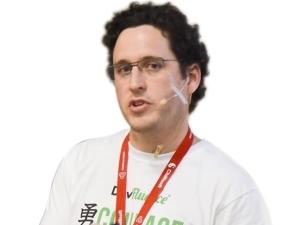
South Africans are abuzz with being part of the "I wanna lend a hand. #Send me" movement.
Muxe Nkondo, in this week's Sunday Independent, succinctly captures the effort that is required from ordinary citizens, where he states that "To tackle these challenges, therefore, requires more than an expression of intent handed over for implementation. It demands the alteration of the structures."
The article highlighted some of systemic faults and fractures that we have become accustomed to as individuals, citizens and business people, says Anujah Bosman, CEO of Chillisoft Solution Services.
South Africans have become accustomed to poor software in the public sector. We have become accustomed to accepting reasons such as the "system is down" when we are renewing car licences or expecting clarity about exorbitant municipal bills.
In fact, software instability and errors are so frequent that the errors are part of the department's standard operating procedures, where pre-printed signs, blaming the system are regularly affixed to counters. Why do we accept this? We read about millions being spent on software that is never implemented or that is poorly written. Why do we accept this?
Similarly, we have become accustomed to the refrain of poor software skills in the market. Why does this situation exist, given that companies religiously spend copious amounts of money on coding boot camps and internships? Why do we now have a mismatch between skill levels and expected salaries that is particularly evident with female and black software developers? Why does the younger generation typically job hop between software development jobs?
This pattern of behaviour is the result of the system of business, where we as business managers are trained to be self-interested and to drive for quick results that are visible. The South African government's incentives such as skills levy grants, points for BBBEE Skills development and a common misperception of how software is actually developed have resulted in short term jobs and over-priced skills of software developers. We have created this situation.
Our quick fix management interventions such as outsourcing software development skills without enabling in-house teams, just exacerbates the problem of low morale and loyalty, resulting in poor retention.
Our short-term actions of job creation may temporarily stifle short-term symptoms of insufficient skills and may temporarily alleviate the perception of risk reduction. However, we as business owners and managers would be wise to remember that success in the business world means that managers who have made poor decisions are seldom around to experience its consequences.
It is for this reason "Send Me", is a question of character. It is a question of exhibiting courage and commitment to a long-term future instead of short-term decisions. As a business manager, are you prepared to look more closely at your decision-making systems that impact your businesses ability to compete in the future? Do you understand why it is imperative that we create software development careers instead of jobs? Are you aware that your decision-making and commitment regarding training South African developers has a direct impact on our ability as a country to compete in the 4th industrial revolution?
Software development training is not about building software development factories! It is about consciously developing and training individuals who choose software development as a career. It is about ensuring that these software professionals are accountable and are reminded to "keep trying to expand a sense of us".
Business, software developers and the society that we live in, are our ecosystem. It is foolish to think that we are independent of each other. If the future belongs to software developers, and "software is eating value chains", it is critical that software developers are grounded in issues that impact human beings, business and society.
Chillisoft is committed to actively developing software development professionals via its school, DevFluence (www.devfluence.io). It understands that training involves the development of soft skills, technical skills and an understanding of context. It has built a successful business by training individuals to be excellent software professionals. Yes, it is continually learning about what it takes to impart a sense of ethics, professionalism, collaboration and technical skills to software teams, but it is a better option than siloed or quick fix training. Please contact Chillisoft to learn more about its programmes and initiatives.
Share
Editorial contacts